(A condensed recap of my talk at the Albany Public Library on Nov. 19)
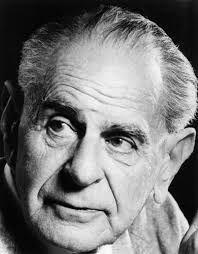
Popper attacks what he calls “historicism” — the idea that history has laws we can discover. But concepts of future inevitability inhibit efforts to change it. Popper says “the future depends on ourselves, and we do not depend on any historical necessity.”
Also, he contrasts “piecemeal” social engineering against utopianism aiming to remake society entirely. The former pragmatically targets the most urgent problems; deploying reason rather than passion, to achieve its aims democratically. Whereas utopianism pretty much requires coercion. A closed society. And that, says Popper, leads to the Inquisition, the secret police, and a “romanticized gangsterism.”
So who are the enemies of the open society, of Popper’s title? Plato, Hegel, and Marx. Most of book is a critique of these three.

But for Plato it had big implications. “The state” too had a corresponding Form — a perfect antecedent, which once existed. Plato saw his contemporary states as necessarily less perfect; indeed, degenerated. To arrest that degeneration, by opposing all change, was the essence of his political program.
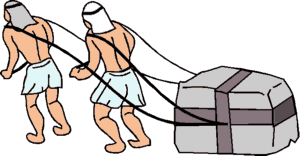
Those rulers would be a class apart, a race apart — with no mixing allowed. This leads Plato to eugenics; he actually invented the idea. The ruling class must preserve its racial purity through carefully supervised breeding.
We associate Plato with the idea of “philosopher kings.” Supervising the eugenics program required trained philosophers — meaning men indoctrinated with Plato’s ideas, giving them the necessary “wisdom.” And also, the mystical “Platonic Number” they’d need.

Popper casts Plato’s ideal as a quintessential closed society; a tribal, collectivist, caste society. Collectivism is often held up as a virtue, the idea that the community supersedes the individual, and one must transcend selfishness and valorize something higher — the collective. Whereas in an open society people are free to choose social connections as they please.
The transition from the former condition to the latter is a profound and even wrenching social revolution. It was first seen in Plato’s Athens, with the rise of democratic and individualist ideas. Popper says Plato actually diagnosed the resulting social strains quite acutely. 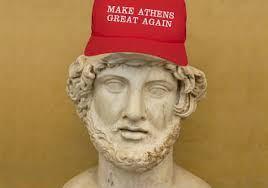
Plato’s ideas may not have seemed so extreme in 400 BC as now. Our quest for wisdom was just beginning. Yet other ancient thinkers, like Epicurus, Democritus, and Lucretius, were already capable of deeply humanistic ideas. And before Plato, in his own Athens, there was Pericles, who said the state should serve the many, not the few. That reason and humanitarianism should rule.
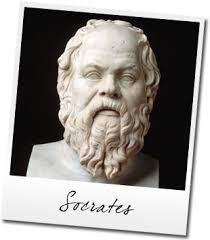
Plato was Athenian, but saw its perennial enemy Sparta as more like his perfect state. Today, we see one even closer to it — North Korea.
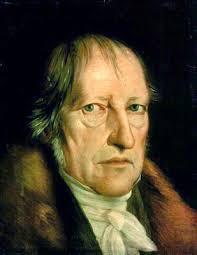
But for all the gibberish, Hegel did have something to say. Whereas Plato saw civilization’s trajectory as degeneration, Hegel saw progress toward an ideal. But not in a straight line. This is the concept of the “dialectic,” with every thesis having its antithesis, and out of their conflict comes a synthesis, a kind of unity of opposites. Then the process can repeat on a higher level. “The history of the world is none other than the progress of the consciousness of freedom.” But alas, what Hegel meant by “freedom” is nothing we’d recognize. The essence of Hegel was the romanticized worship of the state, the nation, and its historical destiny.
Thus did Hegel propel the rise of German nationalism, appealing to tribal instincts, again putting the collective over the individual. Hegel conceived the nation as united by a spirit that acts historically, with the state as its incarnation, asserting its supremacy through war, which he also idolized. The state is exempt from any moral consideration; only historical success matters. 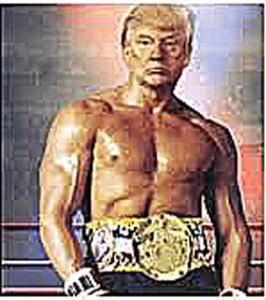
All this Popper deems a surrender of reason and humanity. And German thought is riddled with such tripe, from Fichte to Nietzsche. With, of course, a straight line to Hitler.
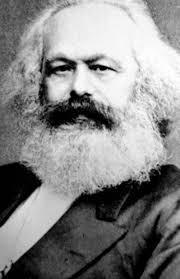
But Marx was not a Marxist, in today’s sense; nor a communist. Instead he was mainly the ultimate historicist, promoting the idea of history as a science, with the working class overthrowing capitalism being predictably destined.
But Popper says that unlike Plato and Hegel, Marx really applied careful reason in his analysis. He also had a genuine humanitarian impulse, troubled by the lousy conditions suffered by working people in industrialized economies. In Marx’s social analysis, economic class interest and class struggle was central. But Popper casts him as an enemy of the open society insofar as Marx sanctioned social change not through democracy but violence. A kind of revolution without moral legitimacy.
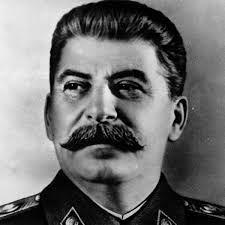
Marx predicted capitalism’s downfall because competition would force intensifying worker exploitation, their worsening misery making revolution inevitable. He never foresaw a totally different story: how proletarians would make the state work for them, by democratic means, achieving a host of reforms regulating and improving working conditions, while also gaining a substantial share of the rising wealth created by vastly increasing productivity. All this led not to greater misery but mass affluence on a scale Marx never imagined. Invalidating his historicist approach.
Popper says “history” is not really even a thing. Human existence is too complex. What people usually mean by “history” concerns just one aspect, political power; which Popper calls an idolatrous worship of power (recalling Hegel). And he’s particularly scathing toward Christians who see “the hand of god” in this so-called history.
He also discusses rationalism versus irrationalism. Of course nobody explicitly advocates irrationalism. But that’s what it actually is when people attack what they call a “soulless” faith in rationalism that supposedly leads to all sorts of excesses, even the Holocaust. Postmodernism, that flourished after Popper, denied there’s any such thing as truth. But while truth may not be absolute, we use our reason to get ever closer to it. The Holocaust did not result from over-reliance on reason, but from the kind of Hegelian irrationalist romanticism Popper denounces.

